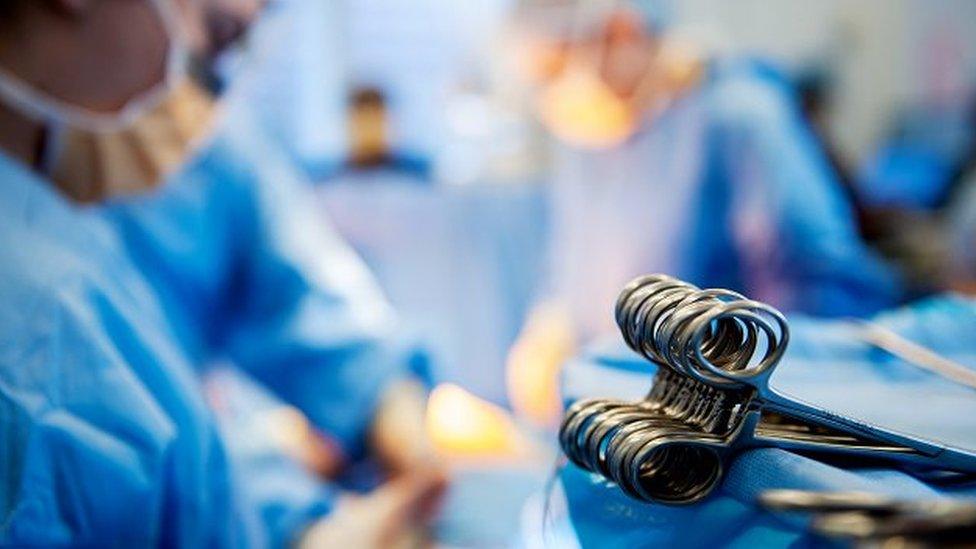'Invaluable' ventilator device could treat two Covid-19 patients at once
- Published
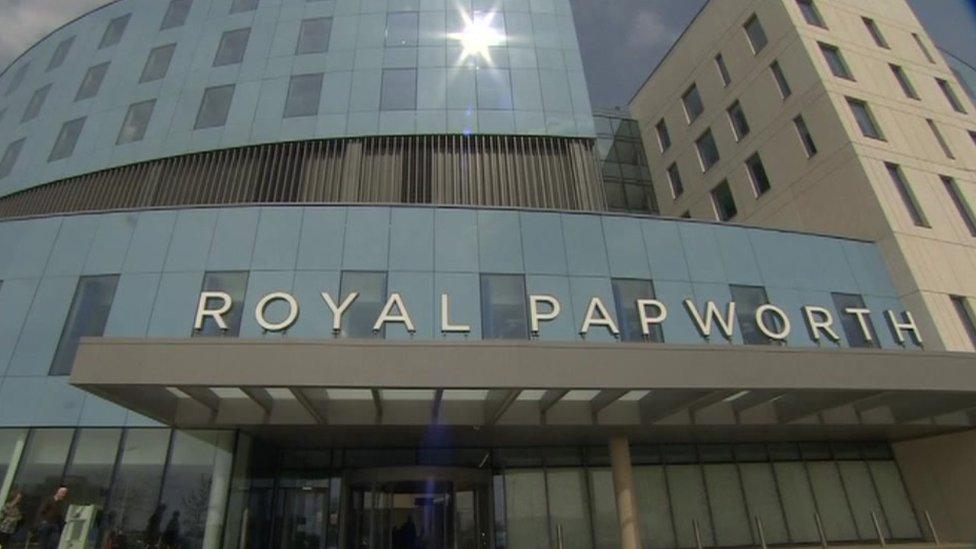
Royal Papworth Hospital said its ventilation device could prove "invaluable" to Covid-19 patients in the future
A device which allows a single ventilator to be shared more safely and easily between two patients has been designed by doctors and engineers.
University of Cambridge engineers and anaesthetists from the Royal Papworth Hospital developed the attachment as an improvement on existing designs.
The splitter could be vital during a second wave of Covid-19 in the UK, they claim.
Anaesthetist Dr Chinmay Patvardhan said it could be "invaluable" in a crisis.
The device, currently undergoing testing, is said to be the only one with an in-built monitor.
It is also described as more portable, easy to set up and is built with parts readily available in the UK.
The Royal Papworth Hospital said although it has enough ventilators, concerns over shortages at the start of the Covid-19 outbreak sparked the research.
The university-based Institute for Manufacturing engineers and the Cambridge Design Partnership also worked on the project.
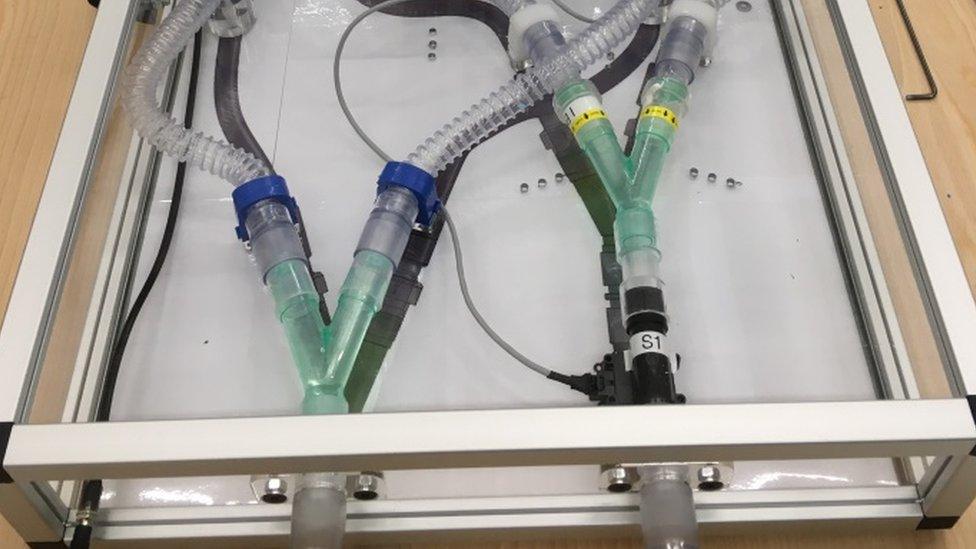
The prototype of the Cambridge-designed device has been tested on different ventilators with "encouraging" results
Anaesthetist Prof Andrew Klein, who helped specify the design alongside Dr Patvardhan, said: "We wanted to have the option, in an emergency, to split and isolate the air delivery from one ventilator between two patients.
"We also needed to have the ability to measure and control the air flow to each patient individually and have confidence that if there was a decline or improvement in breathing in one patient this would have no effect on air delivery to, or monitoring of, the other.
"The solution developed both meets and exceeds our expectations of many of the other options developed elsewhere."
Under emergency health regulations the splitter would be allowed to be used straight away in Britain, but it will now be subject to two years of testing as the need for ventilators has subsided.
The attachment's initial results on artificial lungs have been "encouraging" and so the design has been put online so other countries could reproduce it, external.

Find BBC News: East of England on Facebook, external, Instagram, external and Twitter, external. If you have a story suggestion email eastofenglandnews@bbc.co.uk, external
- Published4 July 2020
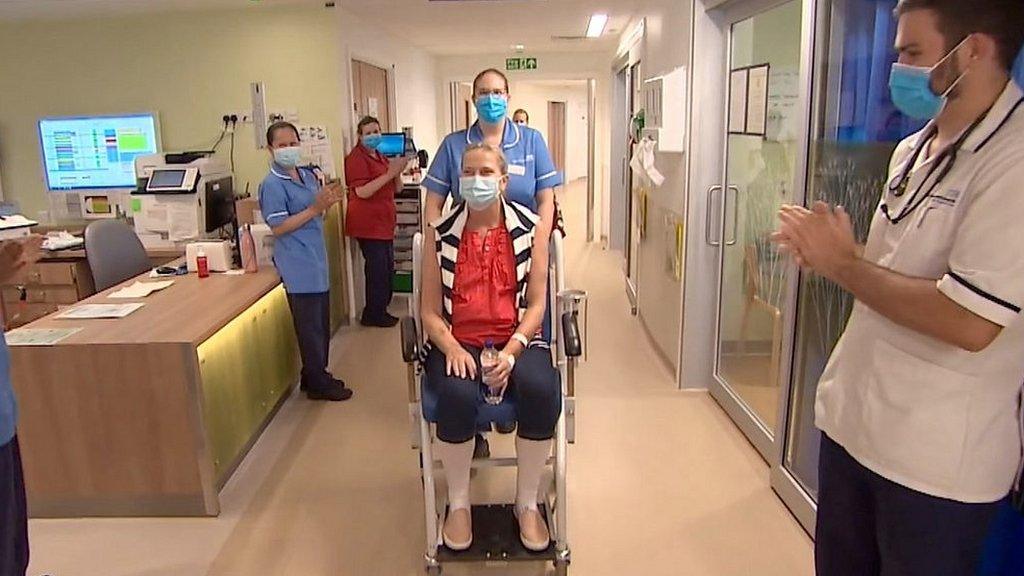
- Published30 June 2020
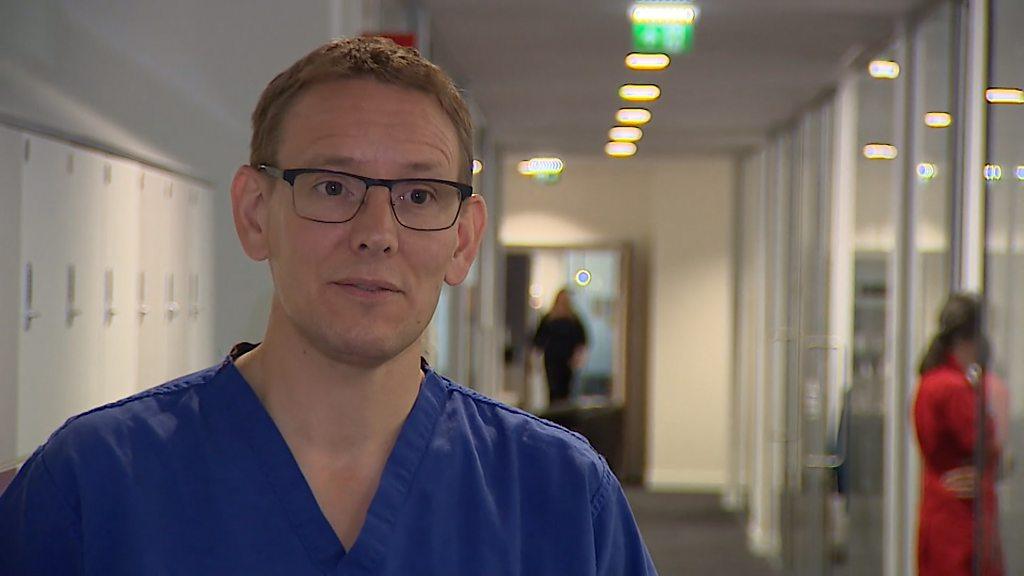
- Published18 June 2020
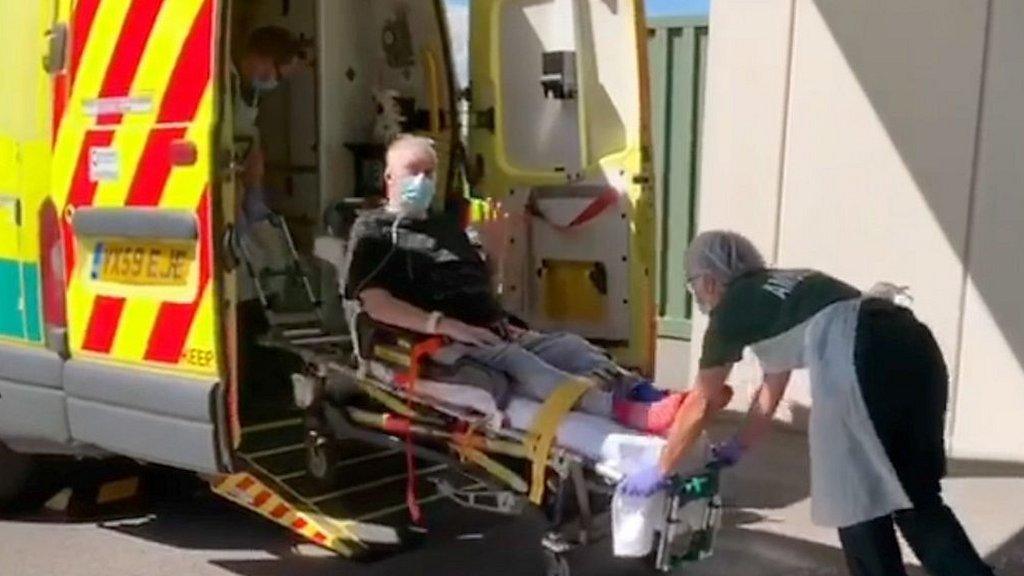
- Published10 April 2020
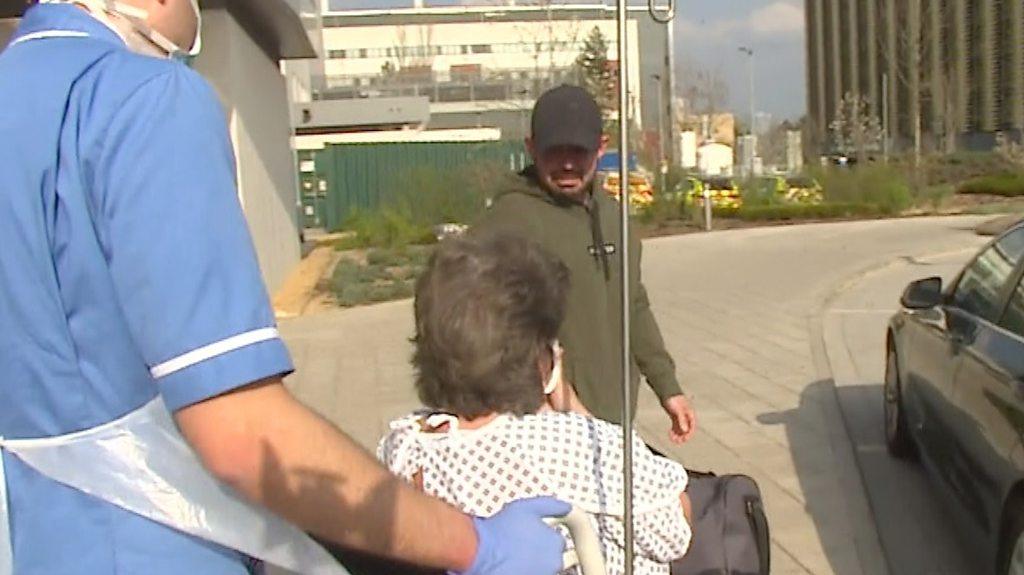
- Published16 April 2020
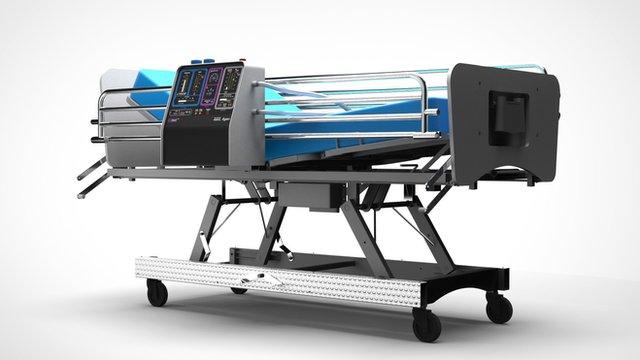
- Published16 October 2019
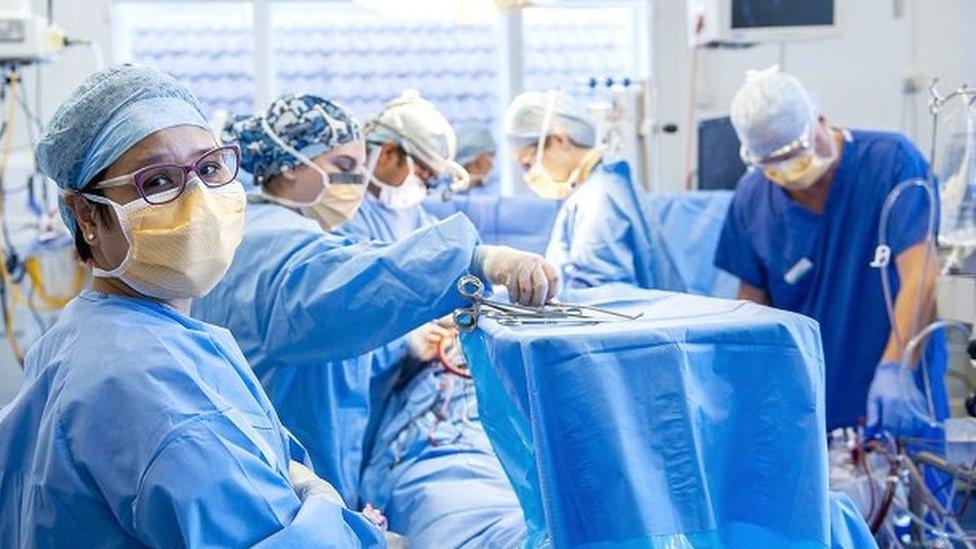
- Published14 January 2019
